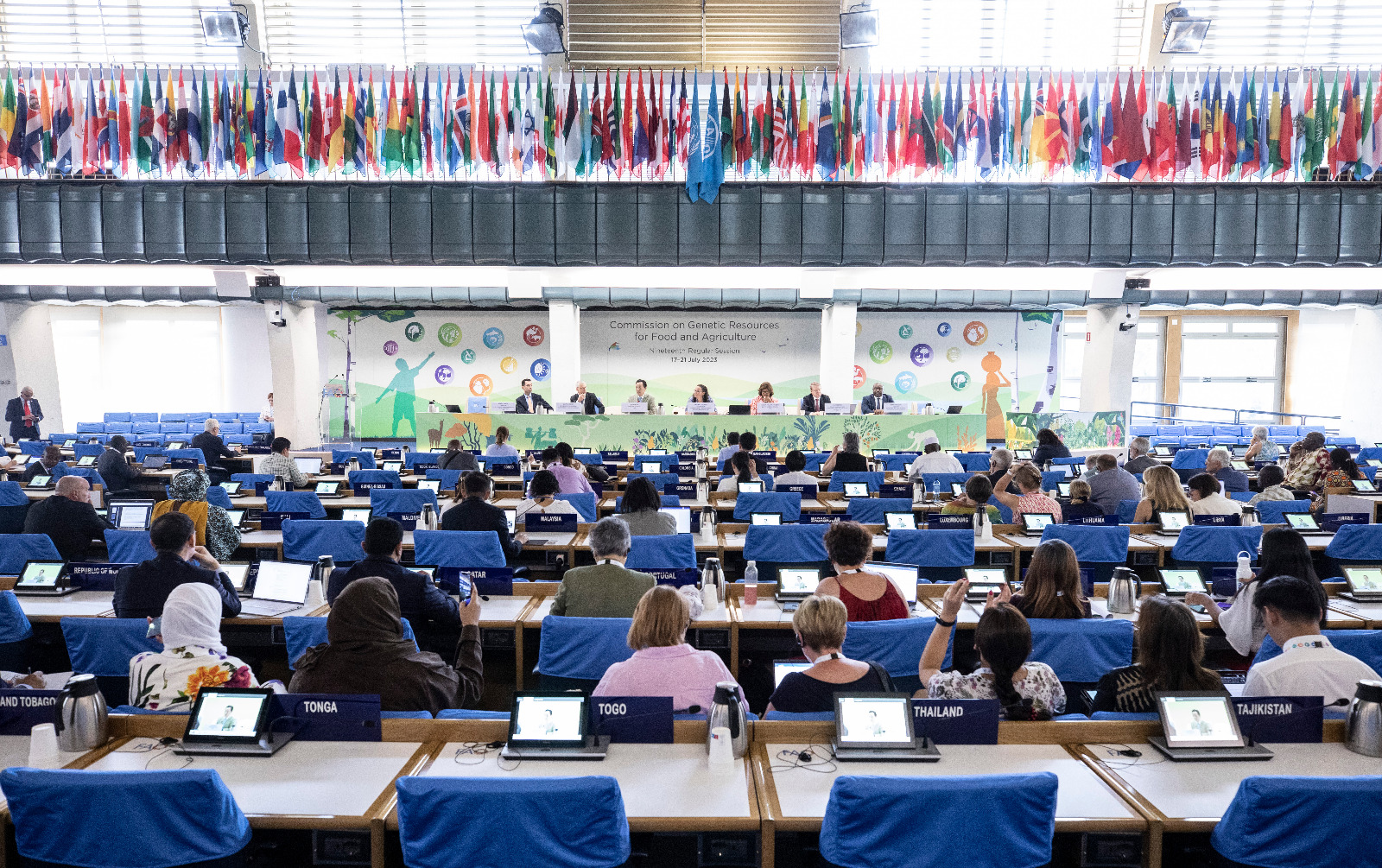November 27, 2025 | 17:42 GMT +7
November 27, 2025 | 17:42 GMT +7
Hotline: 0913.378.918
November 27, 2025 | 17:42 GMT +7
Hotline: 0913.378.918

With 179 countries and the European Union as its Members, the Commission on Genetic Resources for Food and Agriculture guides the preparation of periodic global assessments of the status and trends of genetic resources and biodiversity for food and agriculture.
The Commission on Genetic Resources for Food and Agriculture (CGRFA), the only intergovernmental body that deals with all matters specifically related to biodiversity for food and agriculture, is marking its 40th anniversary, and the importance of its work was stressed today during a meeting in Rome.
“Achieving the 2030 Agenda and transforming the world’s agrifood systems requires approaches that make sustainable use of, conserve and restore biodiversity for food and agriculture,” underscored QU Dongyu, Director-General of the Food and Agriculture Organization of the United Nations (FAO), during the opening of the Commission’s Nineteenth Regular Session (17–21 July).
Qu explained that genetic resources for food and agriculture, and all components of biodiversity, are fundamental to achieving this transformation.
“Over the past 40 years, the Commission has become a key intergovernmental body,’’ he highlighted, reminding that the world is at a time when global biodiversity and the health of ecosystems are declining at an alarming rate amidst global trends in urbanization, diets, employment and trade, aggravated by the climate crisis.
Work ahead
During the five-day session, attended by over 350 delegates and observers, the Commission, among other matters, will review the role of genetic resources for food and agriculture to mitigate and adapt to climate change, as well as other cross-sectoral matters related to biodiversity, nutrition and human health.
“In the past 2 years since the last session of the Commission in 2021, important steps forward have been taken in affirming biodiversity on the global agenda,'' Qu said.
The Director-General was referring to the adoption of the Kunming-Montreal Global Biodiversity Framework in 2022— which consists of global targets to safeguard biodiversity by 2030 — and to FAO’s Framework for Action on Biodiversity for Food and Agriculture, endorsed by the FAO Council in December 2021.
“FAO is committed to supporting its Members in implementing both these frameworks,'' he underlined.
During this session, the Commission will consider FAO’s Framework for Action as part of its agenda and advance two important reports related to the state of the world’s plant and forest genetic resources.
Forty years of history
Biodiversity for food and agriculture is among the Earth’s most important resources. Thousands of species and their genetic variability make up the web of life and are indispensable to adapt to new conditions, including climate change.
The Commission deals with the diversity of domesticated crops, livestock and farmed fish and aquatic invertebrates, forest trees and aquatic species. Its mandate also covers the diversity of all the non-domesticated species that enable production to occur –pollinators, soil-dwelling organisms, the natural enemies of pests, and the microorganisms that enable ruminant animals to digest their food.
Established in 1983, the Commission, as a global forum, aims to reach international consensus on policies for the sustainable use and conservation of genetic resources for food and agriculture and the fair and equitable sharing of benefits derived from their use.
With 179 countries and the European Union as its Members, the intergovernmental body guides the preparation of periodic global assessments of the status and trends of genetic resources and biodiversity for food and agriculture and develops global plans of action, codes of conduct or other policy instruments and monitors their implementation.
Some of the Commission’s landmark achievements include: the International Treaty on Plant Genetic Resources for Food and Agriculture (ITPGRFA); country-driven global assessments on biodiversity, plant, animal, forest and aquatic genetic resources; global plans of action for plant, animal, forest and aquatic genetic resources; numerous policy and technical guidelines; and global information and monitoring systems that provide information on the status and management of genetic resources in countries.
To celebrate the Commissions’ 40-year anniversary, a special event entitled Connecting the dots: Biodiversity, Food and Agriculture was held ahead of the regular session at FAO headquarters.
(FAO.org)

(VAN) A new study reveals how the simultaneous effects of ocean acidification, salinity and loss of oxygen are making the world more fragile.

(VAN) Hopes are growing that the creation of the first 3D turkey gut model could be a turning point in the battle against the virulent blackhead disease.

(VAN) Tyson, America’s biggest meat supplier, plans to shutter one of its largest beef processing plants as the industry continues to struggle with low cattle supplies and political pressure from Washington.

(VAN) New FAO study shows how digital solutions are empowering farmers and fishers to prevent losses and build resilient agrifood systems.

(VAN) Brazil's COP30 presidency pushed through a compromise climate deal on Saturday that would boost finance for poor nations coping with global warming but that omitted any mention of the fossil fuels driving it.

(VAN) Poultry farmers in the UK have been warned that they could face one of the worst winters yet for bird flu.

(VAN) Prices of main-crop paddy have risen sharply, with jasmine rice hitting 16,100 baht per tonne — the highest level in years.